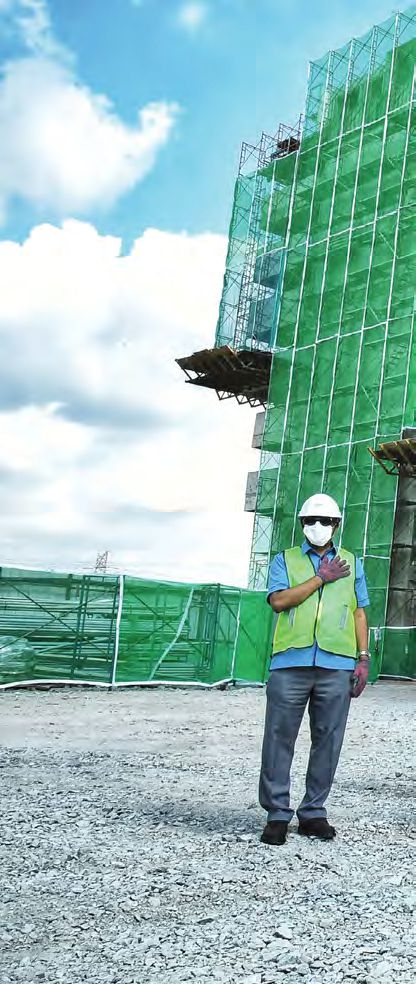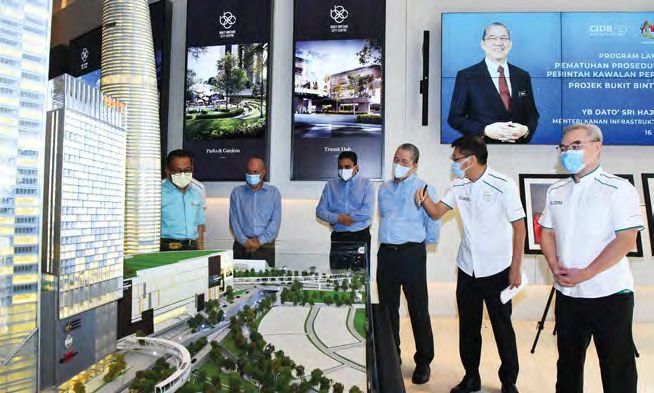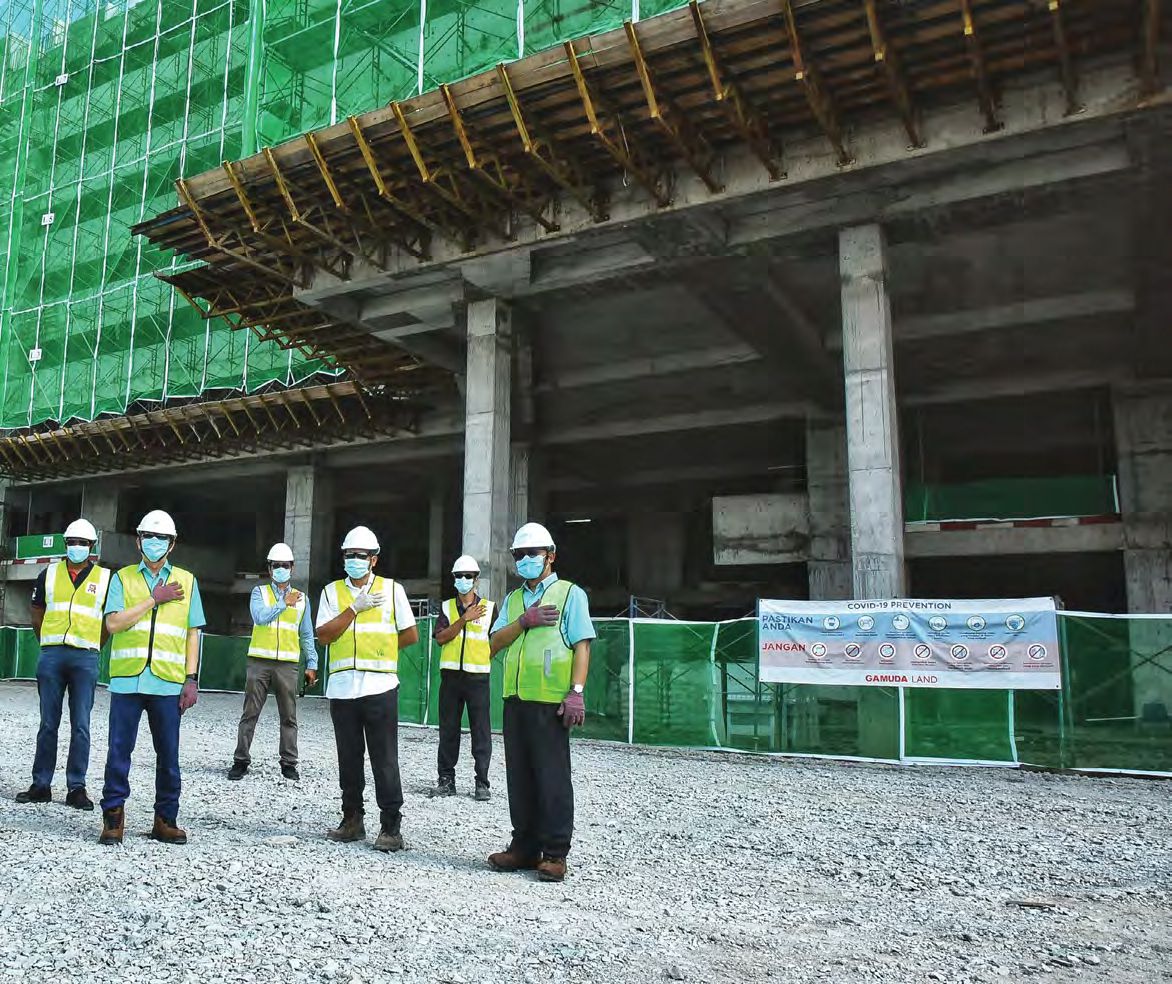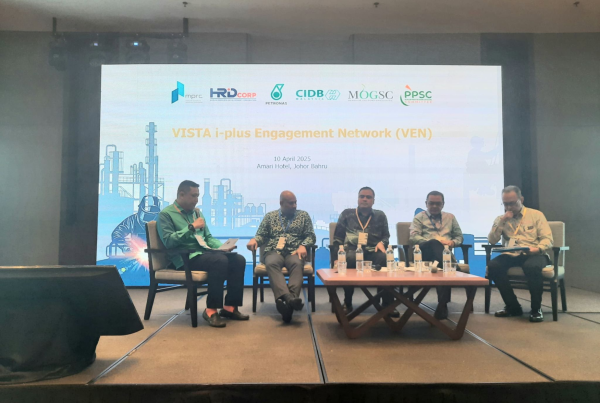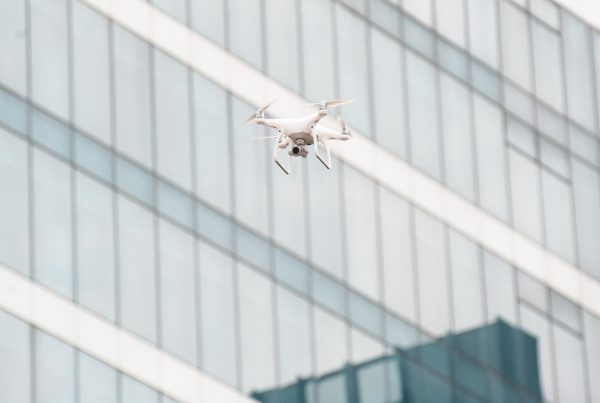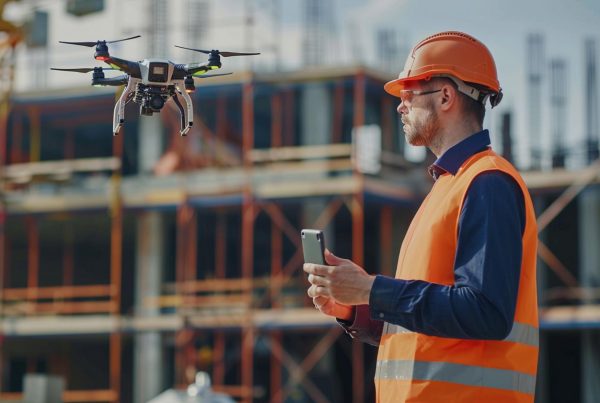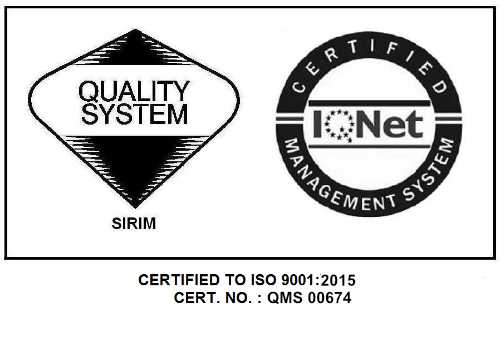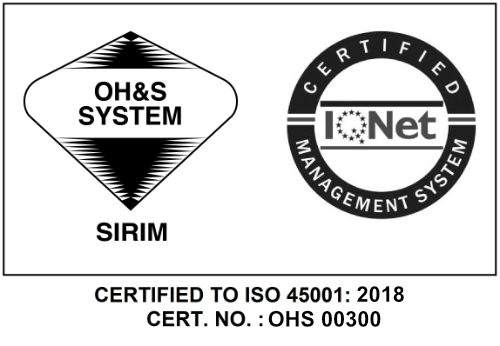Since taking over the helm as Senior Minister – Infrastructure, Minister of Works on 10 March 2020, Dato’ Sri Haji Fadillah bin Haji Yusof has hit the ground running and worked closely with CIDB Malaysia to ensure the recovery of the construction sector without compromising the safety of its workers. He shares with HEIGHTS the challenges and triumphs that have transpired in the first 100 days of his leadership.
Covid-19 has and is continuing to impact the construction industry, including the contractors, engineers, electricians, quantity surveyors and labourers under its umbrella. When the Movement Control Order (MCO) was enforced on 18 March, numerous construction projects and renovations were temporarily halted to comply with government mandates. In order to slow down the spread of the virus and flatten the curve, this directive from the authorities was commendable and valid despite the economic ramifications on the industry. However, choosing to prioritise safety over financial gain inevitably resulted in construction decline during the temporary closure.
“The construction sector is a key contributor to the nation’s economic development, with an average turnover of RM140 billion worth of construction projects annually.
Also, the construction industry has great multiplier effects that impact the growth of other economic sectors, such as the manufacturing, transportation and financial sectors,” said Dato’ Sri Haji Fadillah bin Haji Yusof, Senior Minister – Infrastructure, Minister of Works.
As such, the delay in construction activities has had a significant impact not only on the sector itself but on the other related industries as well.”
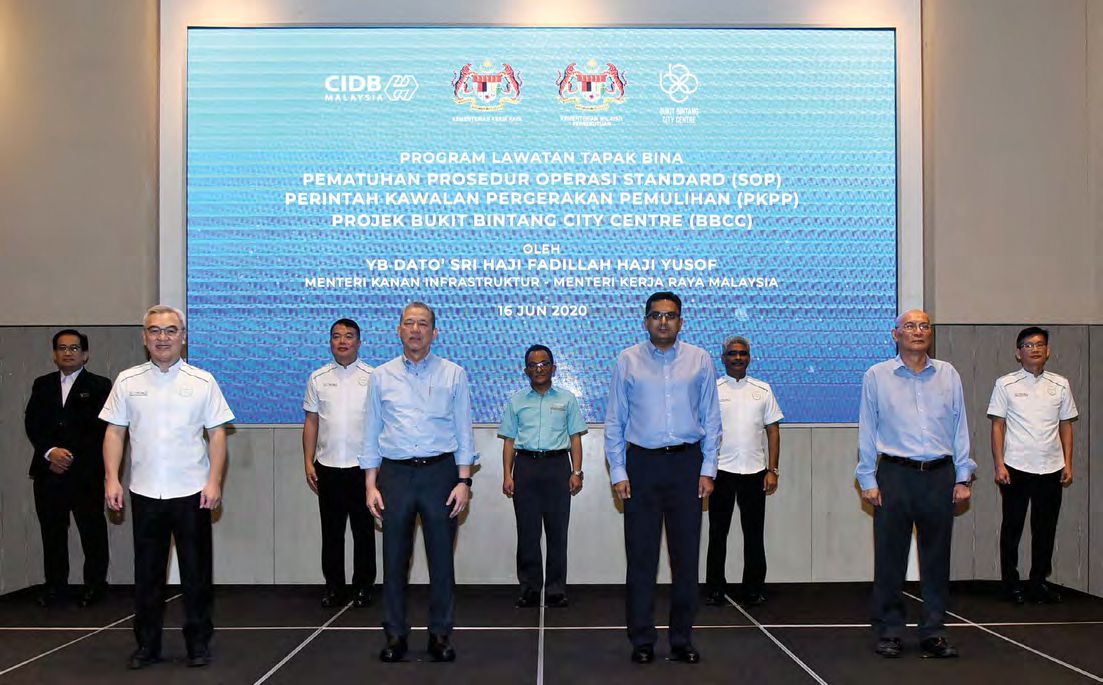
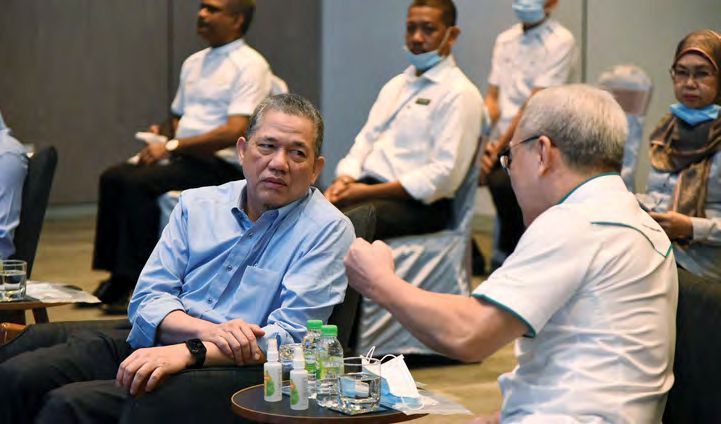
Gradual Reopening of the Construction Industry During the MCO
Recognising the severe impact of a prolonged closure of the industry, the government allowed selected construction activities to operate even in the early stages of the MCO, from 13 April 2020 onwards.
“These activities were, of course, subject to approval by the Ministry of International Trade and Industry (MITI). They encompass projects that do not require a large number of workers on-site, such as building projects with an IBS Score of 70 and above, as well as maintenance and construction works that have achieved more than 90% physical completion,” explained Dato’ Sri Fadillah.
Other construction activities that were allowed included:
- Critical works that ensure the structural safety of construction works such as; slope works, tunnelling, bridge and viaduct works, as well as land surveying works.
- Maintenance, cleaning and clearing of stagnant water at construction sites to prevent the breeding of mosquitoes and other pests.
- All professional services as needed for project management and supervision, including the approval of payments for construction work.
Most importantly, construction works carried out by G1, and G2 contractors were allowed during this stage to enhance the economic viability of small companies. “The work carried out by G1, and G2 contractors are also small and do not involve a large number of workers,” he stated.
At the present moment, all construction projects are allowed to continue operations as long as they abide by the Standard Operating Procedures (SOP) issued by the National Security Council (MKN).
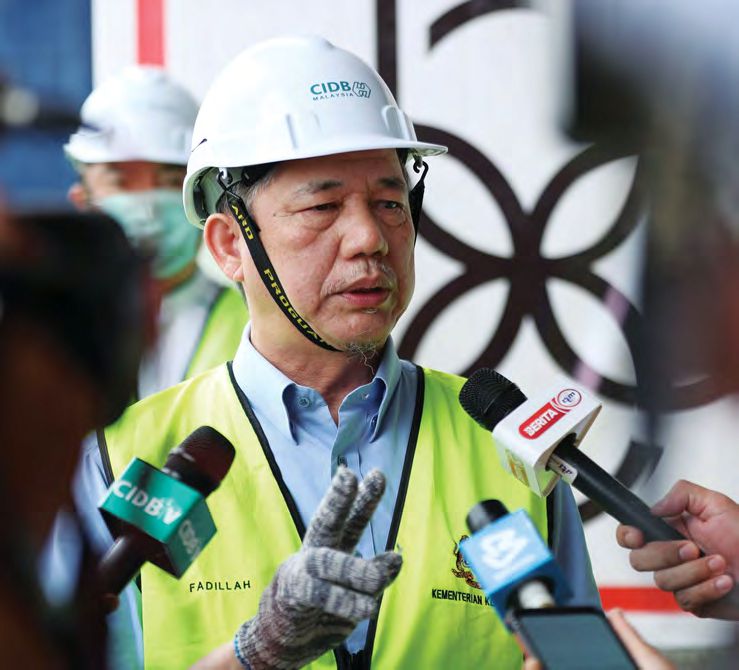
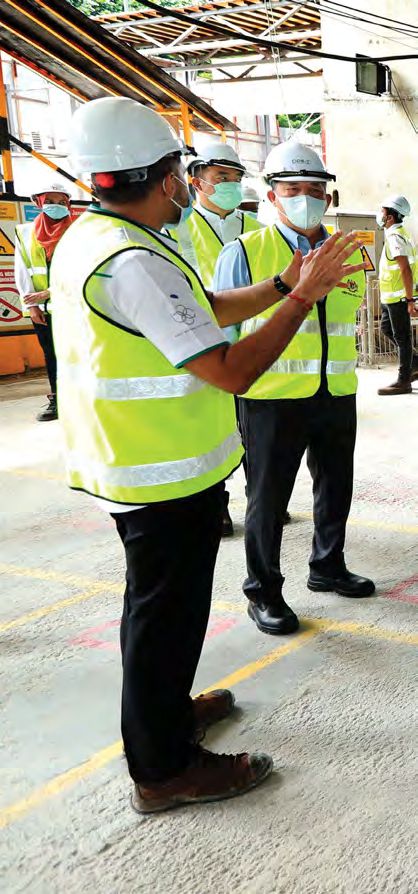
Gradual Reopening of the Construction Industry During the MCO
Recognising the severe impact of a prolonged closure of the industry, the government allowed selected construction activities to operate even in the early stages of the MCO, from 13 April 2020 onwards.
“These activities were, of course, subject to approval by the Ministry of International Trade and Industry (MITI). They encompass projects that do not require a large number of workers on-site, such as building projects with an IBS Score of 70 and above, as well as maintenance and construction works that have achieved more than 90% physical completion,” explained Dato’ Sri Fadillah.
Other construction activities that were allowed included:
- Critical works that ensure the structural safety of construction works such as; slope works, tunnelling, bridge and viaduct works, as well as land surveying works.
- Maintenance, cleaning and clearing of stagnant water at construction sites to prevent the breeding of mosquitoes and other pests.
- All professional services as needed for project management and supervision, including the approval of payments for construction work.
Most importantly, construction works carried out by G1, and G2 contractors were allowed during this stage to enhance the economic viability of small companies. “The work carried out by G1, and G2 contractors are also small and do not involve a large number of workers,” he stated.
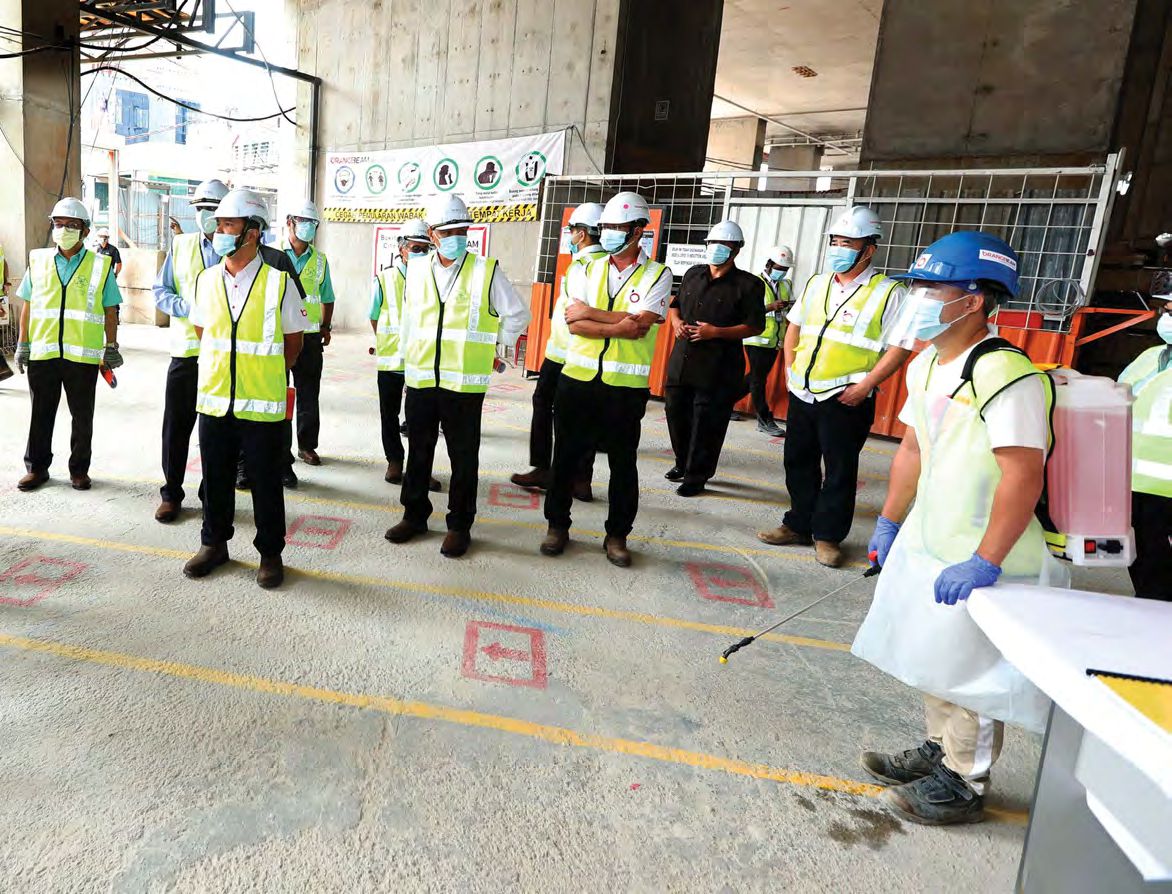
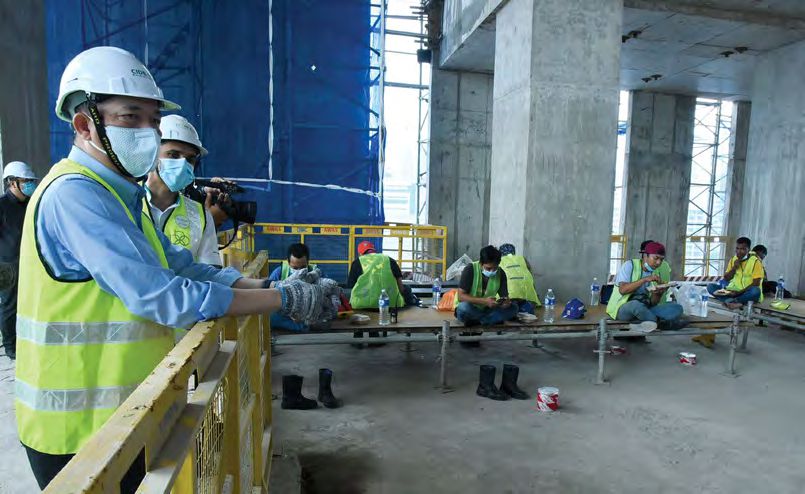
A Commendable Feat
The MCO was announced the week after the new cabinet took the oath, and it was extended every two weeks after that until the Conditional MCO (CMCO) phase came about on 4 May. This meant that Dato’ Sri Fadillah had to tackle the crisis that was Covid-19 right from the onset, at a time where most cabinet members would be easing into their new roles.
Thankfully, he is no stranger to the role, having served as Minister of Works from 2013 to 2018 during the Najib Abdul Razak administration. “My first 100 days have indeed been challenging, but we have been able to pull through the MCO, CMCO and now Recovery MCO (RMCO) phases because of how cooperative Malaysians have been,” he said.
During the MCO phase, Dato’ Sri Fadillah was involved in the daily meetings that addressed the mitigation of Covid-19, and the MKN special meetings chaired by the Prime Minister, as well as the Economic Action Council Meetings.
“Containing the Covid-19 outbreak can only be managed by an unprecedented high level of cooperation, collaboration and solidarity from various ministries and the public in general,” he said. “I am grateful of how cooperative Malaysians have been and for this reason we are able to pull through the MCO to the CMCO and now RMCO.”
Together with his team and CIDB Malaysia, the ‘New Normal’ standard operating procedure (SOP) for the construction industry was launched and revised with the latest SOP released in conjunction with the RMCO, which took place on 10 June.
“The latest SOP includes compulsory Covid-19 testing for all foreign workers in Kuala Lumpur, Putrajaya and Selangor. Temperature checks must also be carried out daily before workers enter the construction site. Contractors must also ensure that social distancing is practised at work, and resting areas in construction sites, and ensuring common areas and workers’ transportation are sanitised after use,” explained Dato’ Sri Fadillah.
He urged contractors in Kuala Lumpur, Putrajaya and Selangor to send their foreign workers for Covid-19 tests offered by the Social Security Organisation (SOCSO). “Foreign workers who have applied to undergo the test or are waiting for their results are allowed to work, on condition that they adhere to the SOP set by MKN,” he said.

On 27 April, SOCSO launched the Prihatin Screening Programme (PSP) offering free COVID-19 tests for its contributors on 27 April. SOCSO’s PSP is able to conduct up to 15,000 tests per day and results can be obtained in three days.
According to SOCSO, more than 30,000 foreign workers covering all sectors to date, have undergone the Covid-19 test through the programme, 40.8% of which hailed from the construction sector. From 1 June onwards, screening under the programme can be done at any clinic or hospital that has been approved by the Ministry of Health.
“Employers in the construction sectors in Kuala Lumpur, Putrajaya and Selangor could claim a subsidy of RM150 from SOCSO for every Covid-19 screening for their workers who are contributors,” said Dato’ Sri Fadillah. “For those who have not yet made contributions to SOCSO, they can register before going for the screening.”
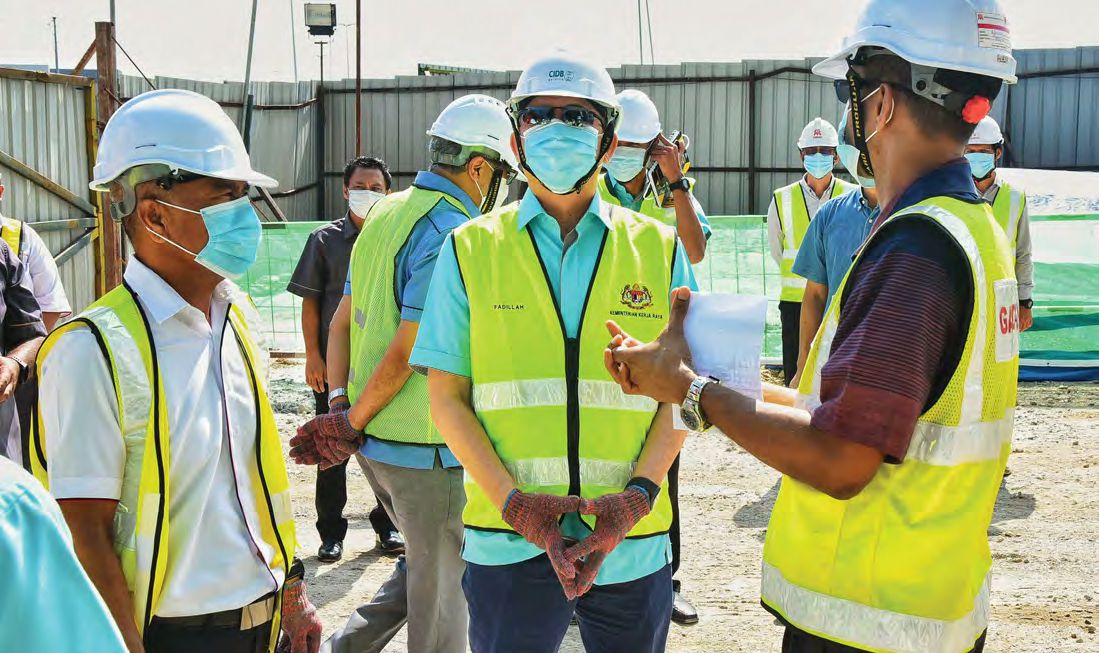
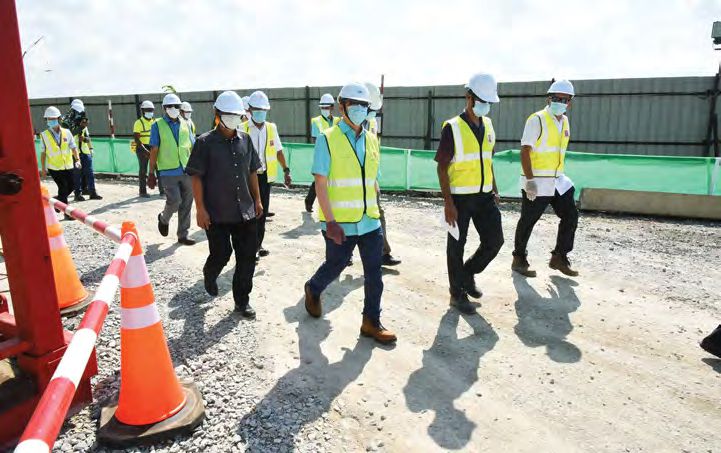
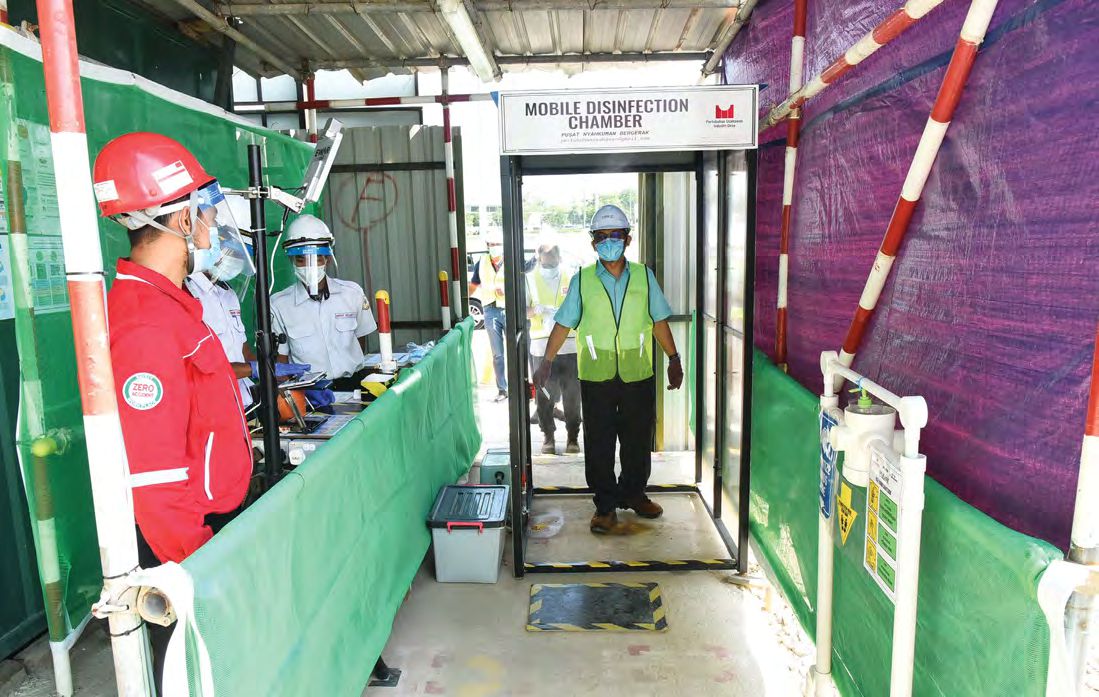
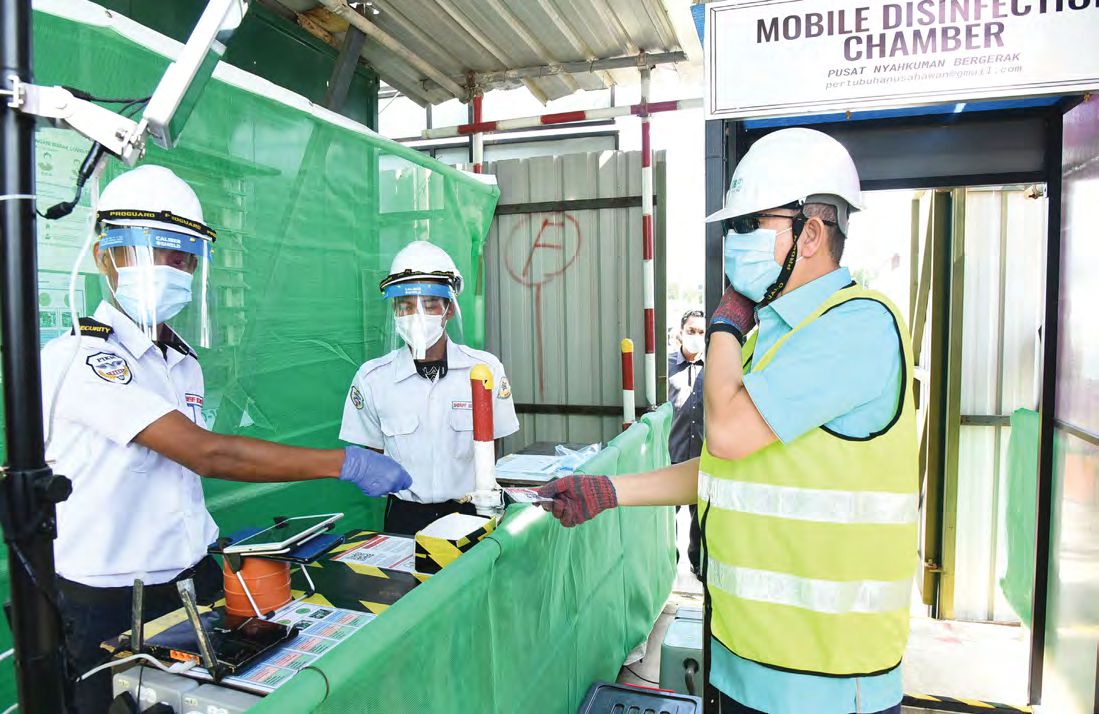
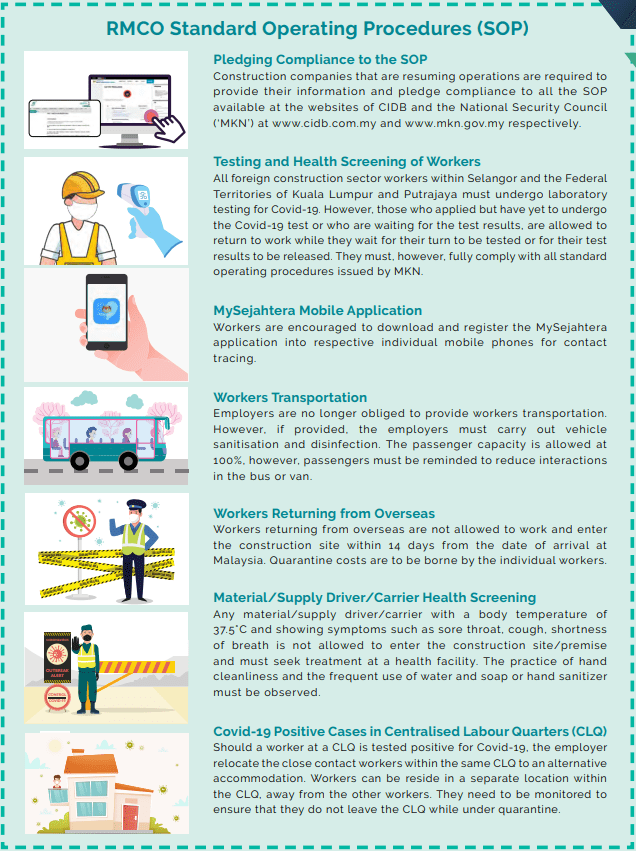
Compliance to SOP is Crucial
“I personally visited two constructions sites recently in order to observe their compliance to the SOPs, namely the TwentyFive Seven Mixed Development Project Site in Kota Kemuning and the Bukit Bintang City Center construction site, Kuala Lumpur. I am pleased to note that the contractors were able to come up with their own initiatives to prevent the spread of COVID 19,” he said.
He observed that many had prepared several resting areas for workers, instead of just one, so that workers do not need to crowd together in large groups and can practise social distancing during breaks. “Some have even created their apps to track the movement of workers to ensure that no one can venture out of the site boundaries during working hours,” he stated.
CIDB Malaysia inspected a total of 7,699 construction sites from the period of 20 April to 14 June. Among these, 17 construction sites were ordered to close temporarily after failing to comply with the SOP.
“I commend the tireless efforts of CIDB Malaysia who ensure that contractors are compliant to the SOP for the safety of all. Thanks to their vigilant and consistent enforcement activities, we were able to help contain the spread of the virus among the construction workers.
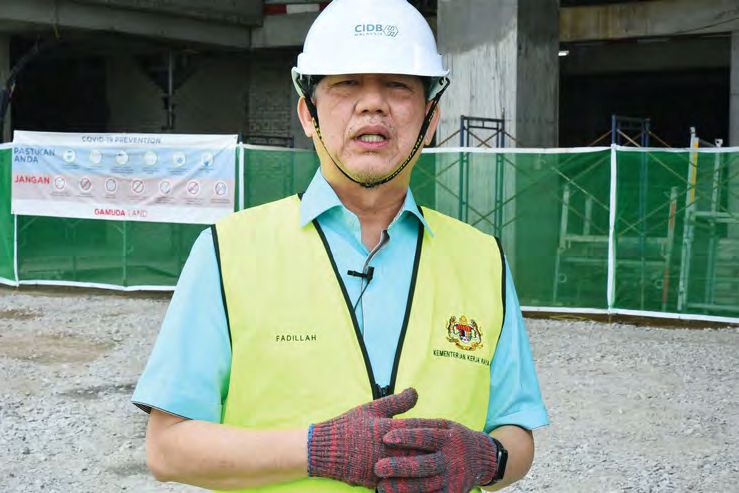
Reviving the Construction Industry
On 5 June 2020, the Prime Minister announced several initiatives under the National Economic Recovery Plan (PENJANA) to help propel the construction industry and stimulate the economy. “PENJANA provides financial assistance for medium and small enterprises, including contractors so that business operators can continue operations and positively impact the economy.”
He stated that the government also offers cashflow support through SME BANK to finance the operations of G2 and G3 contractors who have been awarded small government projects
“Additionally, the Ministry of Works has allocated an additional RM782 million for Federal road maintenance across the country, activating the Highway Privatization Committee to review the direction of private initiative projects, implement new project proposals and quick-win projects under the infrastructure cluster,” Dato’ Sri Fadillah added.
This being the first time all of us are going through a global pandemic of this scale, it is inevitable that many industries, businesses and individuals are badly affected economically. “However, as with any other challenges in life, resilience will help us overcome this. We will bounce back slowly, but surely,” he concluded.
